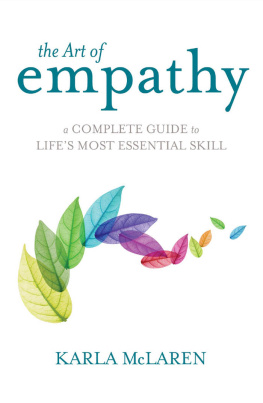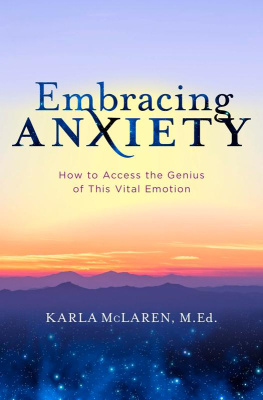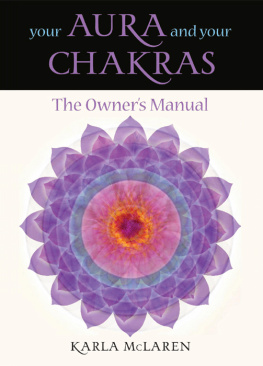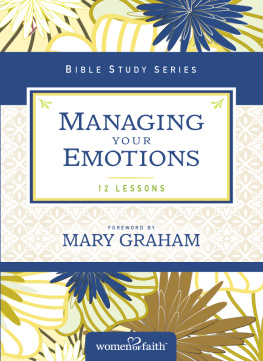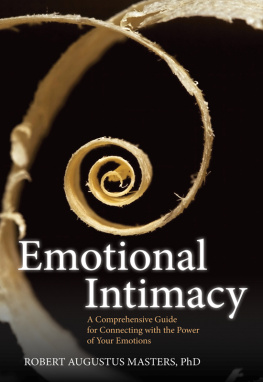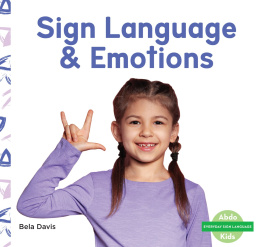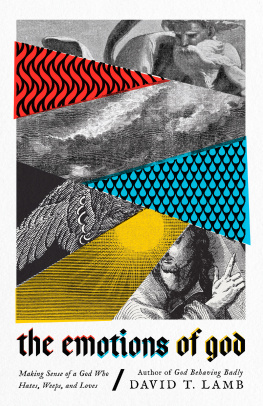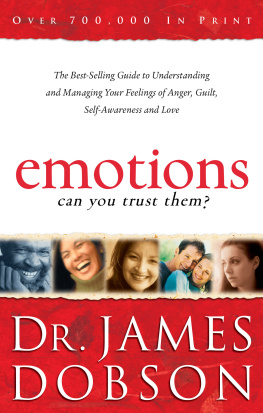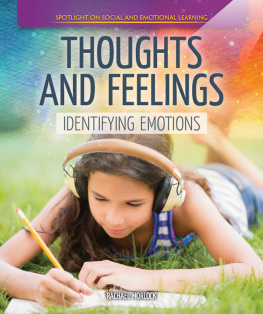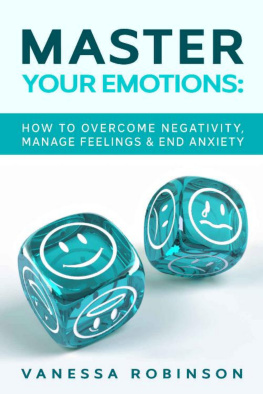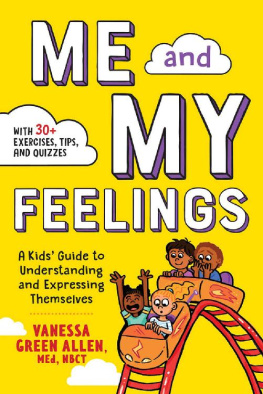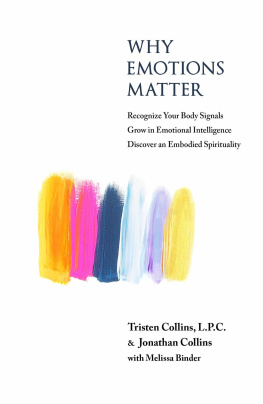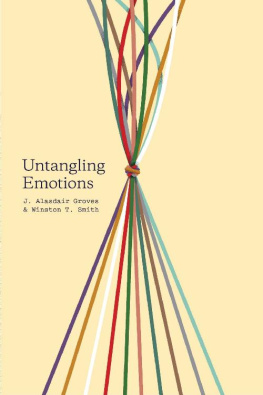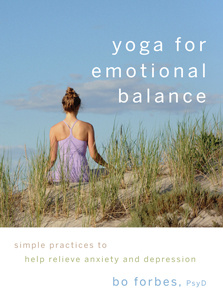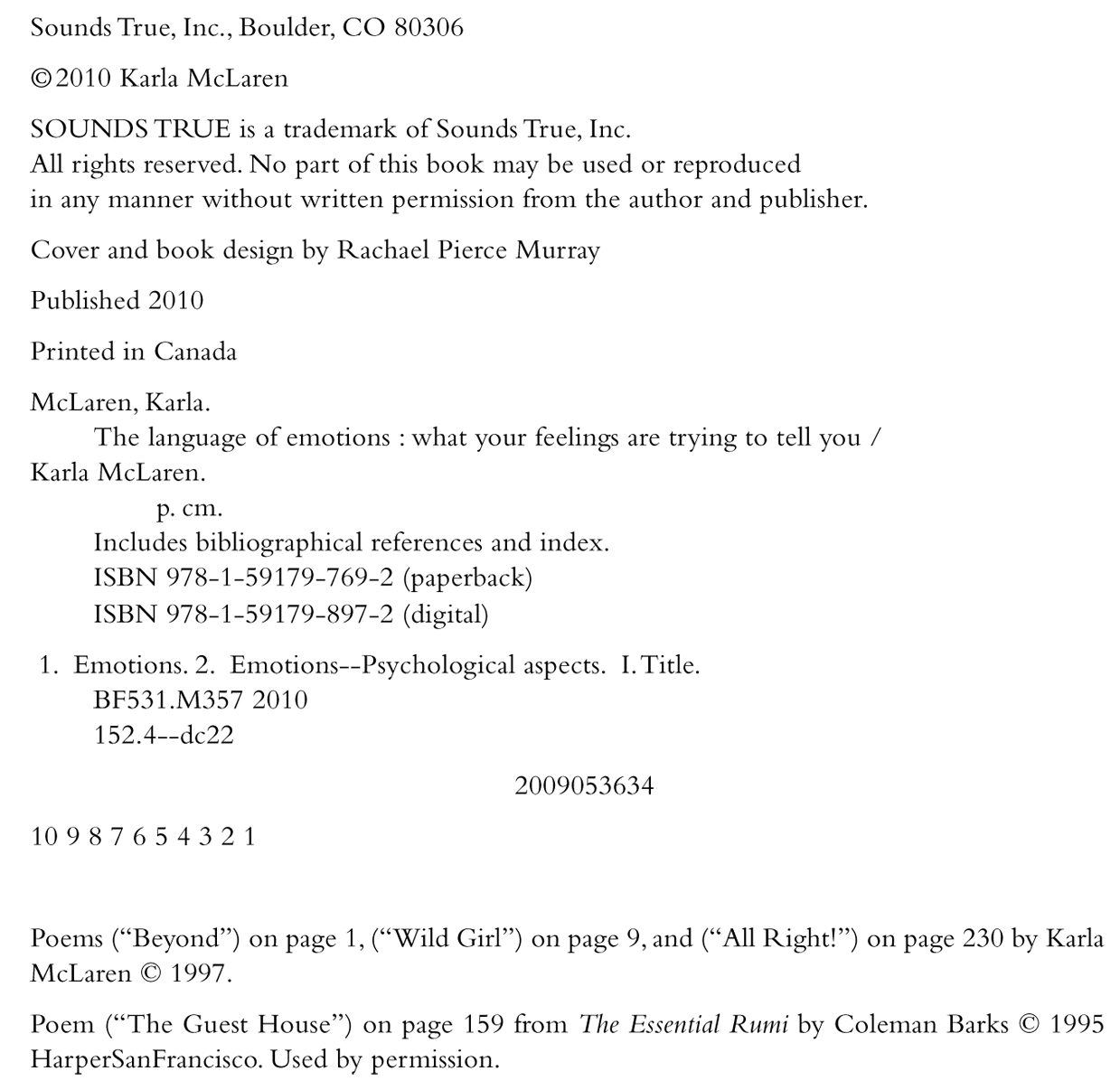Karla McLaren - The Language of Emotions: What Your Feelings Are Trying to Tell You
Here you can read online Karla McLaren - The Language of Emotions: What Your Feelings Are Trying to Tell You full text of the book (entire story) in english for free. Download pdf and epub, get meaning, cover and reviews about this ebook. year: 2010, publisher: Sounds True, genre: Home and family. Description of the work, (preface) as well as reviews are available. Best literature library LitArk.com created for fans of good reading and offers a wide selection of genres:
Romance novel
Science fiction
Adventure
Detective
Science
History
Home and family
Prose
Art
Politics
Computer
Non-fiction
Religion
Business
Children
Humor
Choose a favorite category and find really read worthwhile books. Enjoy immersion in the world of imagination, feel the emotions of the characters or learn something new for yourself, make an fascinating discovery.

- Book:The Language of Emotions: What Your Feelings Are Trying to Tell You
- Author:
- Publisher:Sounds True
- Genre:
- Year:2010
- Rating:5 / 5
- Favourites:Add to favourites
- Your mark:
The Language of Emotions: What Your Feelings Are Trying to Tell You: summary, description and annotation
We offer to read an annotation, description, summary or preface (depends on what the author of the book "The Language of Emotions: What Your Feelings Are Trying to Tell You" wrote himself). If you haven't found the necessary information about the book — write in the comments, we will try to find it.
Your emotionsespecially the dark and dishonored oneshold a tremendous amount of energy. Weve all seen what happens when we repress or blindly express them. However, there is a powerful alternative. In The Language of Emotions, youll learn to meet your emotions and engage with them to safely move toward resolution and equilibrium. Through experiential exercises covering a full spectrum of feelings from anger, fear, and shame to jealousy, grief, joy, and more, you will discover how to work with your own and others emotions with fluency and expertise.
When we relate to our emotions with respect and authenticity, we can directly access our innermost wisdom, unfold the deepest parts of ourselves, and heal our most painful wounds. The Language of Emotions gives us a much-needed resource for self-understanding and freedom:
- How to overcome addictions, distractions, and unresolved traumathe three primary impediments to emotional ease
- Using the energy of anger to protect and restore personal boundaries
- Step-by-step guidance in the five skills of the empath (someone skilled in reading emotions)
- How to balance your quaternity, a metaphor for the interplay of mind, body, spirit, and emotions
- Honoring sadness as a source of release and rejuvenation
Praise
In my graduate education in counseling psychology, I found very little information about our emotions. Yet in my work as a therapist and educator, Ive seen that emotions are key to healing. Karla McLarens book offers an outstanding guide to the signals and messages emotions send us, along with clear instructions for intelligent and emotion-supporting actions we can take in response. Karla has made a huge contribution to the well-being of us all; The Language of Emotions will become required reading in all of my courses.Nancy Feehan, MFT, adjunct professor of counseling psychology at the University of San Francisco
Karla McLarens unique, empathic view of emotions surprisingly revalues even the most negative emotions and opens pathways to understanding the depths of the human soul.
Michael Meade, author of The World Behind the World and The Water of Life
This book changed the way I relate to others, and to myself, forever.
Gavin De Becker, author of The Gift of Fear
Table of Contents
Part I: Restoring Your Native Language
- Introduction- Creating a Conscious Life
- My Empathic Journey- The Difficult Beginnings of Empathy
- Troubled Waters How We Got So Confused
- It Takes a Village Surrounding Your Emotions With Support
- Reviving Your Essential Nature Making Room for Your Central Self
- Avoidance, Addiction, and AwakeningUnderstanding the Need for Distractions
- Unintentional ShamansThe Role of Trauma in Soul-Making and Culture-Binding
- The Role of Emotions in the Resolution of TraumaWater Will Carry You Home
- The Steadfast Promise Why Love is Not an Emotion
- Building Your RaftThe Five Empathic Skills
- Wading Into the Water Awakening All of Your Emotions
- Anger: Protection and RestorationIncludes Rage, Fury, and the Healing of Trauma
- Apathy and BoredomThe Mask for Anger
- Guilt and ShameRestoring Integrity
- HatredThe Profound MirrorIncludes Resentment, Contempt, Disgust, and Shadow Work
- Fear: Intuition and Action Includes Anxiety, Worry, and the Healing of Trauma
- Confusion: The Mask for Fear
- Jealousy and Envy: Relational RadarIncludes Greed
- Panic and Terror: Frozen Fire Includes Healing from Trauma
- Sadness: Release and Rejuvenation: Includes Despair and Despondency
- Grief: The Deep River of the Soul
- Depression: Ingenious StagnationFocusing on Situational Depression
- Suicidal Urges: The Darkness Before Dawn
- Happiness: Amusement and Anticipation
- Contentment: Appreciation and Recognition
- Joy: Affinity and CommunionIncludes Exhilaration and Honoring Happiness in Others
- Stress and Resistance: Understanding Emotional Physics
- Emotions Are Your Native LanguageThe Fine Art of a Life Well Lived
Karla McLaren: author's other books
Who wrote The Language of Emotions: What Your Feelings Are Trying to Tell You? Find out the surname, the name of the author of the book and a list of all author's works by series.

